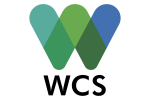GCBC Remote Sensing and Drone Mapping Consultant
- Career Category: Individual Consultant / Advisor
- Schedule:Full-time
- Salary: N/A
Reports to: Conservation Impact Technical Advisor
National Biodiversity Technical Advisor
Location: Remote and in-person
Start Date: 10 November 2025
Country Program/Sector: Global Conservation Program – Greater Mekong
Position Type: Consultant
Internal liaison:
- Director of Policy & Strategic Development
- GCBC Scientific Advisor
- KSWS Landscape Senior Technical Advisor
- GCBC project partners
Position Summary
The GCBC Remote Sensing and Drone Mapping Consultant will provide expert technical support and strategic guidance on geospatial and remote sensing components of the GCBC project. He will support the project in delivering high-quality geospatial analysis to assess land use and land cover change, landscape fragmentation and spectral biodiversity within Andoung Kraloeung, in collaboration with the WCS GIS team and the broader GCBC consortium.
A key component of this role includes capacity building; the consultant will design and deliver necessary trainings for local project staff, provide ongoing mentoring and support the adaptation of workflows to the local context. The consultant will travel to Cambodia for in-person staff training and field deployment activities.
The consultant will be responsible for ensuring that all remote sensing activities align with project goals and reflect the highest scientific standards. He is also expected to participate in regular coordination meetings and contribute to project planning, progress reporting and knowledge sharing across the GBCB team. Finally, the consultant will support the GCBC project team in developing high-quality scientific outputs.
Scope of Work
The consultant will be responsible for delivering high-quality geospatial analysis, drone-based data collection support, and capacity building within the GCBC project framework. Their responsibilities will include the following tasks:
- Land Use and Land Cover Change (LULC) Analysis
- Develop and document the GIS and Remote Sensing methodologies to assess land use and land cover change from 2016 to 2024, with a focus on AK.
- Conduct the analysis of LULC change from 2016 to 2024.
- Produce a comprehensive report detailing the LULC analysis, including methodologies and tools used, key findings, maps and interpretation of land use transitions and their relevance to conservation and Indigenous land management.
- Drone-based Data Collection and Spectral Biodiversity Analysis
- Develop methodologies for the implementation of drone-based data collection (field protocols and flight plans).
- Conduct spectral biodiversity analysis using high-resolution drone imagery to assess spatial variation in vegetation diversity and align these outputs with field-collected vegetation plot data.
- Collaborate with the Forest Carbon Technical Advisor to help design the ground truthing and vegetation plot sampling protocols.
- Support the integration of drone-based spectral data with other monitoring components such as bioacoustics.
- Capacity Building and Technical Support
- Deliver trainings to build capacity of WCS and partners’ staff in basic and advanced GIS and remote sensing techniques, drone imagery and spectral analysis tools.
- Example: An introduction to Drone Remote Sensing (Flight Planning and Photogrammetry)
- Land Cover Reference Data collection Methodologies
- Drone Data Image Processing and Analysis
- Provide ongoing mentorship throughout the project period including regular technical check-ins with field teams.
- Participate in regular online project meetings, dissemination activities, and intellectually contribute to broader project discussions, outputs, and communications.
- Scientific Publication
- Support the drafting of methods and results for at least one scientific article.
- Collaborate with WCS on the interpretation and visualization of spatial data for publication.
- Contribute to internal review and revision of manuscripts intended for peer-reviewed scientific journals.
- Provide guidance to GCBC team members on scientific writing best practices, particularly in relation to remote sensing and drone-based methods.
- Advanced proficiency in remote sensing and GIS tools, including demonstrated experience with Google Earth Engine (GEE), ArcGIS,, multispectral drone data collection and analysis, and processing software
- Previous experience in training and capacity building, with a track record of successfully designing and delivering training on remote sensing, drone operations, GIS applications and related platforms for technical and non-technical audiences.
- Demonstrated experience conducting LULC change analysis.
- Strong academic background in remote sensing, GIS, environmental science, ecology or a related discipline
- Experience working in Southeast Asia


